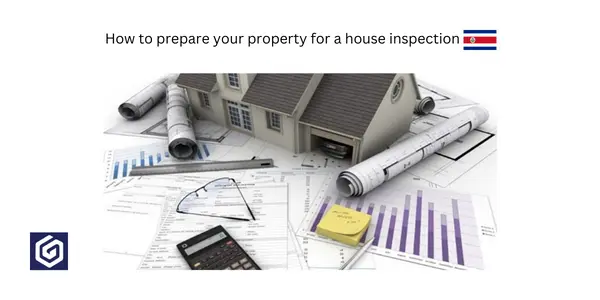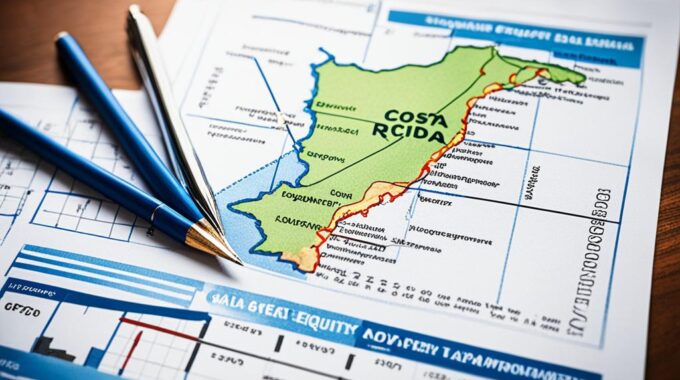Discover the leading Asset Loan Providers In Costa Rica offering competitive rates and flexible terms for your financial needs.

Costa Rica Loan Evaluation Preparation 2023
When you’re looking to take out a mortgage loan on your property, the mortgage lenders will want to do a site visit on your property to ensure that the LTV (loan to value) or real estate is worth the value sufficient for the amount of money you’re looking to borrow. To make sure you are in the best position, you should follow these tips in preparation for a Costa Rica loan evaluation in 2023.
Prepare your paperwork
Make sure that all of the necessary paperwork is in order. This includes copies of your title deed (Plano), proof of insurance, recent tax bills, and more. If there are any prior liens on the house, these need to be noted to us as soon as possible so they can be sorted out appropriately.
Exterior Maintenance
The soil in Costa Rica is something other countries dream of for their agricultural needs. But this comes with the cost of maintenance; it only takes half of a green season to overgrow your grass and plants to a level where it’s difficult even to see the building behind it. Get the lawn mower and weed whacker out or pay a professional to do it for you because first impressions are essential, and you only get one chance at it.

Make necessary minor and major repairs
Costa Rica has many earthquakes and thus can shift a house enough to put a crack in the wall or warp doorframes. Getting a handyperson prior to filling and painting over a hole in the drywall or a crack in the wall can be the difference between an eye sore and devaluating your property. Fixing a door frame can be as quick as 15 seconds if you know what you’re doing and avoid an awkward interaction where you struggle to enter an unused room closest to an inspector behind you.
An expert assessor is trained to identify any severe problems, such as a foundation that is sinking or damaged, and will raise red flags accordingly. Major concerns should be resolved before you miss your chance to get the loan you need since these kinds of severe issues can put a deal on hold.
Declutter and clean
If you treat the inspection the same as you would a real estate showing to a potential buyer, you’re off to the right start. Organizing your furniture to give the place some life without overcrowding can be key. When in doubt, go the simple route; sometimes less is more, as it shows off the architecture better. Taking your appliances off of your kitchen table tops and storing them in the cabinetry below to show your marble countertops can be a good idea. Just be sure to give everything a once-over cleaning before presenting to provide it with the final much-needed touch. Hiring a maid to clean and organize beforehand is always a good recommendation.

Prepare yourself for questions
Do you know the materials that have been utilized in the construction of the building? Was rebar used to strengthen the walls? These inquiries are typical, especially when something isn’t observable. Are there any specific issues you anticipate being questioned about? For example, living next to a river or at the foot of a mountain might raise concerns about landslides and or flooding. Be prepared to answer questions about measures taken to prevent such potential calamities. Over-prepare, and you will never underperform.
How will the lender evaluate your property?
The lender will likely perform a physical inspection of the property and review the paperwork, as well as measure the property to ensure the property’s square meterage. They will also look at recent sales of similar properties in the area to get a sense of the property’s value. If there are any outstanding liens or mortgages on the property, the lender will need to take those into account, as well as deals are rarely done as a second-place mortgage. Ultimately, the lender will want to feel confident that the property is in good shape and worth their investment.
Conclusion
As you can see, there are a few things you can do to get your house ready for a loan review. Make sure all of the required documentation is in order first. This includes copies of your title deed (Plano), insurance documentation, and most current tax statements. Additionally, you should do the required repairs and clean up the property. The lender will have a better understanding of the property’s worth as a result and allow for things to move quickly to the goal, which is finalizing the deal. Lastly, be ready to respond to any inquiries the lender may have regarding the property.
By following these tips, you can help ensure that your property is in the best condition possible and that you have a better chance of getting the loan you need. If you have any questions or concerns, do not hesitate to get in contact.
*Loan Request Form
Frequently Asked Questions
Can foreigners apply for loans in Costa Rica?
Yes, foreigners can apply for loans in Costa Rica.
How long does it take to get approved for a loan in Costa Rica?
The approval process can take anywhere from a few days to a few weeks, depending on the lender and the type of loan. It is important to have all the necessary documentation and information ready to speed up the process.
Can I negotiate the interest rate for my loan in Costa Rica?
Yes, it is possible to negotiate the interest rate with your lender. However, your negotiating power may depend on your creditworthiness and other factors.
Can I apply for a loan online in Costa Rica?
Yes, many lenders offer online loan applications. However, it is important to verify the legitimacy of the lender and to protect your personal and financial information.
What happens if I default on a loan in Costa Rica?
If you default on a loan in Costa Rica, the lender may take legal action against you and your assets may be seized to pay off the debt. It is important to make timely payments and communicate with your lender if you are experiencing financial difficulties.
Contact us for more information, or fill out a loan request now!
Need Residency status in Costa Rica? – Click HERE.
Looking for Real Estate? – Click HERE.
Want to invest? – Click HERE.
Article by Glenn Tellier (Founder of CRIE and Grupo Gap)




